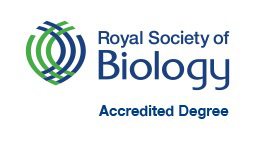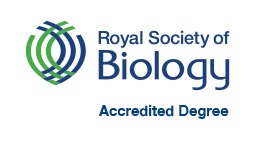Genetics and Biochemistry (with integrated year in industry) Code CC48 Attend an Open Day Attend an Open Day Clearing places available – 0800 121 40 80
Apply NowYou are viewing this course for September start 2024
Key Facts
CC48-
UCAS Tariff
120 - 104
-
Course duration
4 years
Further details on entry requirements
Apply NowIn choosing to study the Genetics and Biochemistry Degree with the integrated year in industry at Aberystwyth University you will work at the forefront of this exciting discipline. By undertaking a year in industry, you will develop the skills and knowledge that employers are desperately seeking. Genetics has almost limitless potential to help understand and treat genetic disease and develop new medicines. Additionally, you will explore genetically modified organisms and evaluate their benefit to humankind. Building upon a foundation that includes key genetics and biochemistry understanding you will soon start to specialise into genetics, human genetics, gene expression, pharmacology, and data handling. Upon successful completion of the Genetics and Biochemistry Degree you will have the skills and attributes necessary for diverse careers that include biomedicine, forensic science, DNA profiling, clinical cytogenetics, genetic counselling, and food production amongst others.
Course Overview
Modules September start - 2024
Please note: The modules listed below are those currently intended for delivery during the next academic year and may be subject to change. They are included here to give an indication of how the course is structured.
| Module Name | Module Code | Credit Value |
|---|---|---|
| Biological chemistry | BR17320 | 20 |
| Cell Biology * | BR17520 | 20 |
| Comparative Animal Physiology | BR16720 | 20 |
| Genetics, Evolution and Diversity | BR17120 | 20 |
| Microbial and Plant Diversity * | BR19920 | 20 |
| Skills for Biologists * | BR16820 | 20 |
| Module Name | Module Code | Credit Value |
|---|---|---|
| Applied Molecular Biology and Bioinformatics | BR20620 | 20 |
| Cell and Cancer Biology | BR25920 | 20 |
| Chromosome Dynamics | BR21820 | 20 |
| Practical Skills for Biochemists | BR22920 | 20 |
| Proteins and Enzymes | BR26620 | 20 |
| Research Methods * | BR27520 | 20 |
| Module Name | Module Code | Credit Value |
|---|---|---|
| Integrated Year in Industry | BRS0060 | 60 |
| Module Name | Module Code | Credit Value |
|---|---|---|
| Bioinformatics and Functional Genomics | BR37120 | 20 |
| Biotechnology | BR35520 | 20 |
| Molecular Biology of Development | BR36020 | 20 |
| Research Project * | BR36440 | 40 |
Options
| Module Name | Module Code | Credit Value |
|---|---|---|
| Frontiers in Plant Science | BR35820 | 20 |
| Molecular Pharmacology | BR36120 | 20 |
* Also available partially or entirely through the medium of Welsh
Careers
Teaching & Learning
Typical Entry Requirements
UCAS Tariff 120 - 104
A Levels BBB-BCC with B in Chemistry
GCSE requirements (minimum grade C/4):
English or Welsh, Science and Mathematics
BTEC National Diploma:
DDD-DDM in a specified subject
International Baccalaureate:
30-28 with 5 points in Chemistry at Higher Level
European Baccalaureate:
75%-65% overall with 7 in Chemistry
English Language Requirements:
See our Undergraduate English Language Requirements for this course. Pre-sessional English Programmes are also available for students who do not meet our English Language Requirements.
Country Specific Entry Requirements:
International students whose qualification is not listed on this page, can check our Country Specific Entry Requirements for further information.
The University welcomes undergraduate applications from students studying the Access to Higher Education Diploma or T-level qualifications, provided that relevant subject content and learning outcomes are met. We are not able to accept Access to Higher Education Diplomas or T-levels as a general qualification for every undergraduate degree course.
Our inclusive admissions policy values breadth as well as depth of study. Applicants are selected on their own individual merits and offers can vary. If you would like to check the eligibility of your qualifications before submitting an application, please contact the Undergraduate Admissions Office for advice and guidance.


